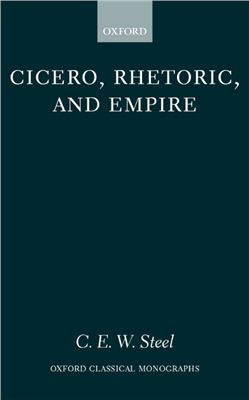2001. 249 pp.
Comparison with Cicero’s letters and philosophical
work suggests that the presentation of empire in the
speeches is the result of a conscious simplification to enable
Cicero to avoid having to make public choices about the
exploitation of imperial resources which could alienate many of
his supporters. The terms of his contribution to the imperial
debate are formed by his weaknesses as a politician as much as
by his strengths: and insofar as he was active in shaping the
views of his contemporaries on imperial issues one can trace a
paradoxical connection between Cicero’s attempts to maintain
his position as a politician who did not have direct access to the
spoils of empire and the ultimate collapse of the republican
system of govement, which gave Cicero access to public life,
under the attacks of war-lords fuelled by imperial conquest.
Comparison with Cicero’s letters and philosophical
work suggests that the presentation of empire in the
speeches is the result of a conscious simplification to enable
Cicero to avoid having to make public choices about the
exploitation of imperial resources which could alienate many of
his supporters. The terms of his contribution to the imperial
debate are formed by his weaknesses as a politician as much as
by his strengths: and insofar as he was active in shaping the
views of his contemporaries on imperial issues one can trace a
paradoxical connection between Cicero’s attempts to maintain
his position as a politician who did not have direct access to the
spoils of empire and the ultimate collapse of the republican
system of govement, which gave Cicero access to public life,
under the attacks of war-lords fuelled by imperial conquest.

